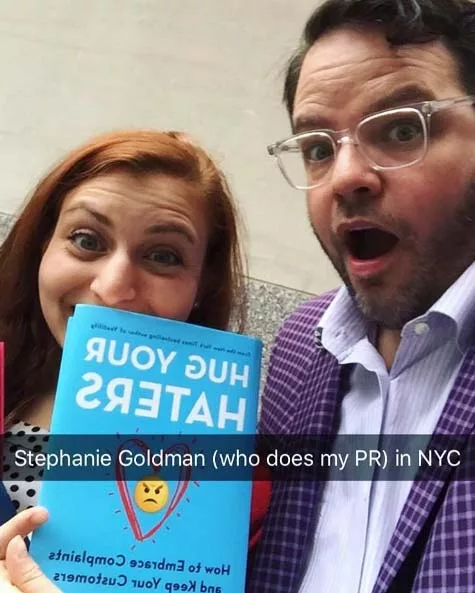By Stephanie Kirschner
According to research conducted by marketing guru, Jay Baer (Convince&Convert Consulting), for his book, Hug Your Haters: How to Embrace Complaints and Keep Your Customers, 80 percent of companies say they deliver superior customer service, while only 8 percent of their customers feel the same way about their service. This spread between the percentages is quite astounding. Companies need to take note, for according to Baer, he estimates that by 2020, buyers in B2B sectors will value their customer experience over and above price, a trend that is also true in B2C sectors.
It is clear that customer experience is driven by customer expectations of company interaction vs. how the interaction actually played out and whether it fulfilled, exceeded, or fell short of expectations. This matters more than ever, when you consider that today’s customer operates as a product reviewer/journalist/expert recommender, sharing views via social media situation. This is set to expand exponentially.
Baer stresses the standard: to modernize customer service and respond to customers, across every channel, in real time. It has been documented that this can raise customer loyalty by 25 percent. PR and marketing practitioners can have an outsize role in this, as they construct responses on behalf of their clients and “mind their store.” Chief marketing officers, the typical agency client, will rank this support key to their relationship.
According to fellow marketing guru, Daniel Lemin, CMOs worry that poor customer service/customer experience will create negative sentiment among an ever-larger social media audience, damaging reputation, preventing digital conversion (of interactions to product sales) and eroding revenue. Agency partners would do well to note this growing concern as an opportunity for they can offer third-party objectivity, which puts them in the best position to help brands permanently and effectively solve this problem.
Further, agency partners can act as liaisons between customer service and marketing groups within larger brands. Remember, these divisions of a company don’t typically share budgets and so are often not on the same page in terms of goals.
The takeaway: Customer experiences with companies dictate brand loyalty nearly instantly, increasing the importance of customer service and presenting a growing opportunity for agency partners to offer consulting services dedicated to bridging the gap between marketing and customer service. Agency partners should embrace this role and be prepared to guide communications with customers, which directly influence brand perceptions.






